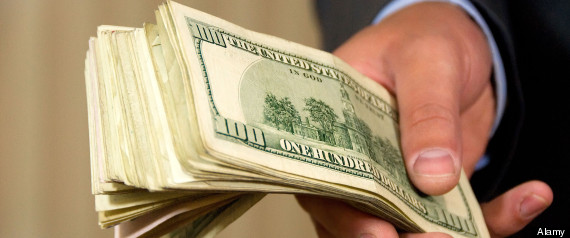Alleviating Kenyan Poverty Through $1,000 In Cash
June 27, 2013 in Daily Bulletin

Helping people in poverty is notoriously hard. It is estimated that in India, for every dollar spent by the government on food or employment aid for the poor, 50 cents are lost to corruption. One solution? Just give poor families $1,000, writes Dana Goldstein;
- GiveDirectly is the brain-child of four Harvard and MIT graduates and does what it says on the tin; Kenyan families are given $1,000 in instalments of $200 . There are no requirements, terms or conditions. The families can do whatever they like with it.
- The charity identifies which families to give money to based on what their houses are made of (mud or concrete?). The typical recipient otherwise lives on 65 cents-per-person-per-day.
- Initial results are encouraging. Recipients have often been spending money on food or home improvements such as a weatherproof tin roof. Others have invested in small businesses, rearing chickens or vending clothes. Early analysis suggests mothers and grandmothers are more likely to invest in children’s well-being than fathers and grandfathers.
- By giving money directly to those in need the bureaucracy of the third sector can be avoided, making gift-giving more efficient. After all, who knows a family’s needs better than the family?
- Non-profit organisation responses have not been overly enthusiastic. “There’s an industry that exists that tries to make decisions for poor people and determine what’s best for them.” explains one NGO employee “If this works, what are we all here for?”
- GiveDirectly is gathering interest. Google donated $2.4 million to expand operations beyond Kenya. Facebook’s co-founder Chris Hughes joined the board of directors in August.
For more about how this approach is different to micro-loans, why village elders are no longer consulted and why this approach might work in Africa though not the USA, click here
Source: The Atlantic
Join the Discussion! (No Signup Required)